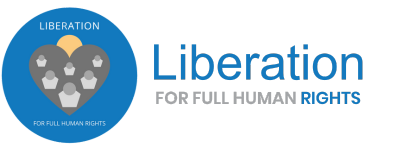The Mental Health Bill 2025
This Bill is very little different from the draft Bill introduced by the Conservative Government. It, too, is non-compliant with the UN Convention on the Rights of Disabled People (UNCRPD).
Particular concerns are:
- The Bill's mistaken approach to risk
- Its failure to ensure equal rights for people with mental health diagnoses
- The fact that it remains unfit for the 21st century
- The fact that those of us campaigning for full human rights under the UNCRPD are not being given any meaningful influence over the Bill
As a result, Liberation is campaigning strongly against this Bill, too. We are calling for radical changes. For more information, see here
The Draft Mental Health Bill 2022
Liberation has been continuing to campaign for mental health law which is compliant with the United Nations Convention on the Rights of Persons with Disabilities (UNCRPD)/ the United Nations Convention on the Rights of Disabled People, as many of us call it. That is because of some fundamental human rights issues with the draft Mental Health Bill published in 2022, continuing human rights issues with recommendations from the Joint Committee which scrutinised the draft Bill and horrifying evidence of neglect and abuse in psychiatric hospitals which has been emerging in the media.
Some key concerns about the draft Bill
- We welcome the government’s acknowledgement that mental health law urgently needs reform. However, a major disappointment is that the draft Bill is based on the European Convention on Human Rights (ECHR), not the UNCRPD. In addition, the draft Bill rests on the concept that improvements to the Mental Health Act (MHA) 1983 are what is needed; there is a lack of recognition that the MHA is fundamentally flawed in human rights terms and so needs fundamental change
- Contrary to the UNCRPD, the draft Bill remains based on a medical model instead of a social model. It fails to address the inequalities in society that disable us. It does contain an increased emphasis on supporting people in the community, particularly in the case of people with learning difficulties and neurodivergent people. However, this emphasis still falls well short of the vision for independent living set out in Article 19 of the UNCRPD
- In contravention of the UNCRPD (especially Articles 12, 14 and 19), the draft Bill aims to reduce, but not to end involuntary admissions to psychiatric hospitals and forced treatment. That is partly because the draft Bill still fails to recognise that we should retain our legal capacity (equal legal rights), regardless of any assessments made about our mental capacity. It is also because the draft Bill remains based on outdated ideas about risk which are not well supported by research: the assumption that at least some coercion remains necessary to prevent us being a risk to ourselves, or others
- The draft Bill fails to put forward a key role for user-led organisations. It also falls well short of addressing the human rights of those of us who experience more than one form of discrimination. A key focus on anti-racism measures is missing, even though people from racialised communities are disproportionately represented among detained patients, particularly Black African and African Caribbean people. There is a marked failure, too, to address discrimination which also stems from gender, gender identity, older age, sexual orientation and physical or sensory impairments.
For a detailed critique of the draft Bill, see the evidence which Liberation submitted to the Joint Committee which has scrutinised the Bill.
Continuing human rights issues in the Joint Committee’s recommendations
- The Joint Committee has limited itself to calling for further improvements to the draft Bill at this stage, as opposed to root and branch reform, and, whilst it has advocated more fundamental reform in the long term, the wording of the recommendation leaves it very unclear whether full implementation of the UNCRPD is intended. In this context, a particular concern is that Committee members have barely mentioned recent evidence of appalling neglect and abuse in psychiatric hospitals which has been emerging in the media
- The Committee supports increased community provision, especially for people with learning difficulties and neurodivergent people, and recommends strengthening the legal responsibility to provide it for the latter. The Committee has also emphasised the need for adequate resourcing of changes, comprehensive further training for the workforce and clear programmes of action which include measures for monitoring the impact of changes made. However, its recommendations still retain many elements of a medical model approach
- Despite some suggested strengthening of measures designed to reduce involuntary admissions to hospital and forced treatment, the Joint Committee supports a continuing use of these forms of coercion. Committee members have continued to draw on a mental capacity, instead of a legal capacity model. In addition, they incorrectly attribute a prohibition of compulsion to the UNCRPD Committee’s interpretation of the Convention, as opposed to recognising that the prohibition is built into the Convention
- The Joint Committee again makes no recommendations about a key role for user-led groups. It puts forward some, if still limited recommendations about anti-racism content for the draft Bill and has a little more emphasis on intersectional issues that are not currently addressed in the Bill. However, the recommendations continue to fall well short of what is needed.
The Committee’s recommendations can be found here, or in the easy read copy of its report. For further information about the ongoing human rights issues, see the more detailed summary from Liberation.
The point now reached is that the government is considering the Committee’s recommendations and will make a decision about them shortly.
Recent evidence of appalling neglect and abuse in psychiatric hospitals and high levels of deaths
Evidence which has emerged in the media has been shocking. The evidence has related particularly to Essex psychiatric services, the Edenfield Centre at Prestwich Hospital, the Huntercombe Group and the Tees, Esk and Wear Valleys NHS Foundation Trust. However, it seems likely that this evidence is only the tip of the iceberg. Following representations made to her, Maria Caulfield, the Minister for Mental Health, has set in hand a rapid review of safety in English psychiatric hospitals. You can find information about it here. However, the limited nature of this review is hugely concerning. For example, its focus and approach have not been decided in partnership with those of us who have experience of detention in psychiatric hospitals. In addition, although rapid action is needed, the time limit of a few weeks for the review seems very unlikely to be adequate, given that the review will be covering the whole of England. The review is, too, based purely on existing paperwork.
A start has been made with individual investigations into psychiatric services named above, but, by definition, these are not nationwide inquiries. There has again, too, been a failure to set up the work in partnership with those of us who have experience of being detained under the MHA.
Liberation, with support from a number of other user-led organisations, has called for a halt to further progress with the draft Bill until there has been a full, public and nationwide inquiry into neglect, abuse and deaths in psychiatric hospitals, so that the findings can be taken fully into account in decisions made about the final content of the draft Bill; see the article in Disability News Service. It is positive that, after being approached by John Pring, Disability News Service's editor, the government has made some response to that, in particular the DHSC has said that "it has not ruled out a public inquiry, despite the rapid review". However, it remains unclear that any fundamental change to the draft Bill will occur as a result of further action.
Relevant work being undertaken by the Access to Justice Hub
The Access to Justice Hub is an internationally-based group which addresses discrimination against Disabled people who are incarcerated (the fact that we can still be detained involuntarily in psychiatric hospitals and forensic units on the basis of a disability and that we experience serious inequalities in criminal justice trials and prisons). The Hub’s approach is based on the UNCRPD. It consists of Fellows from a wide range of countries, including Dorothy Gould, Liberation’s Founder and Coordinator. What is encouraging is that the Hub is now one of several key international groups that are calling for an end to all forms of disability-based incarceration.

